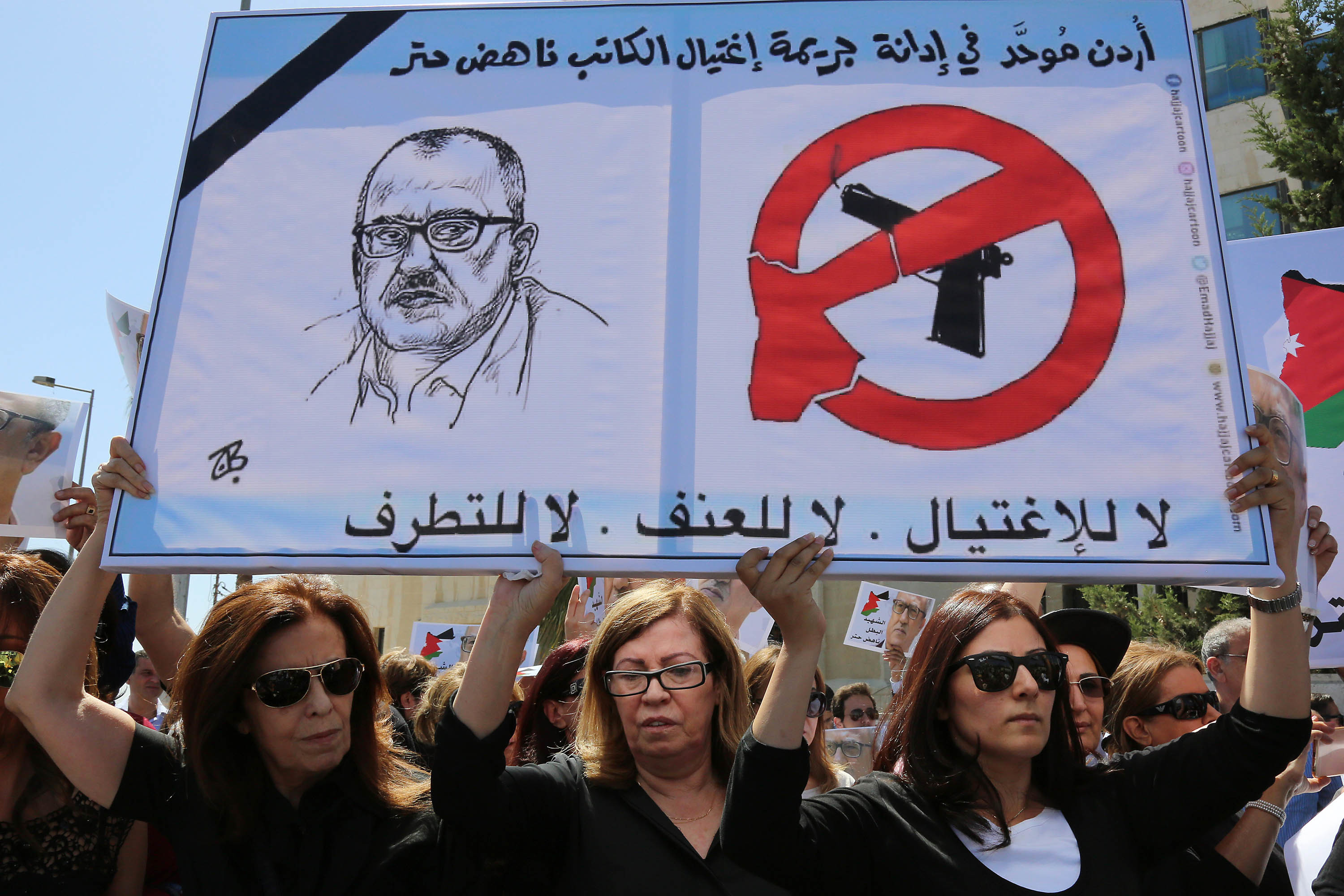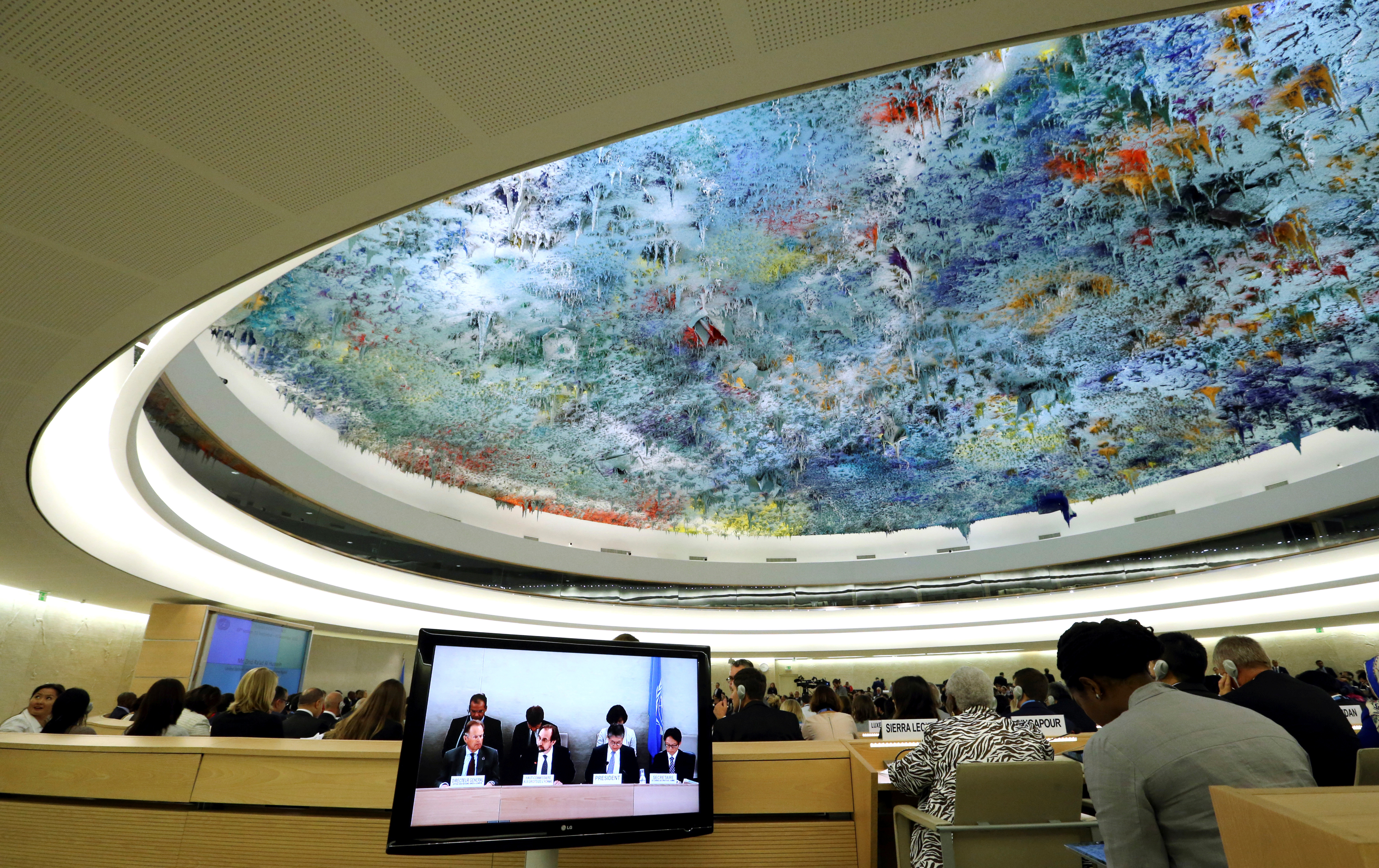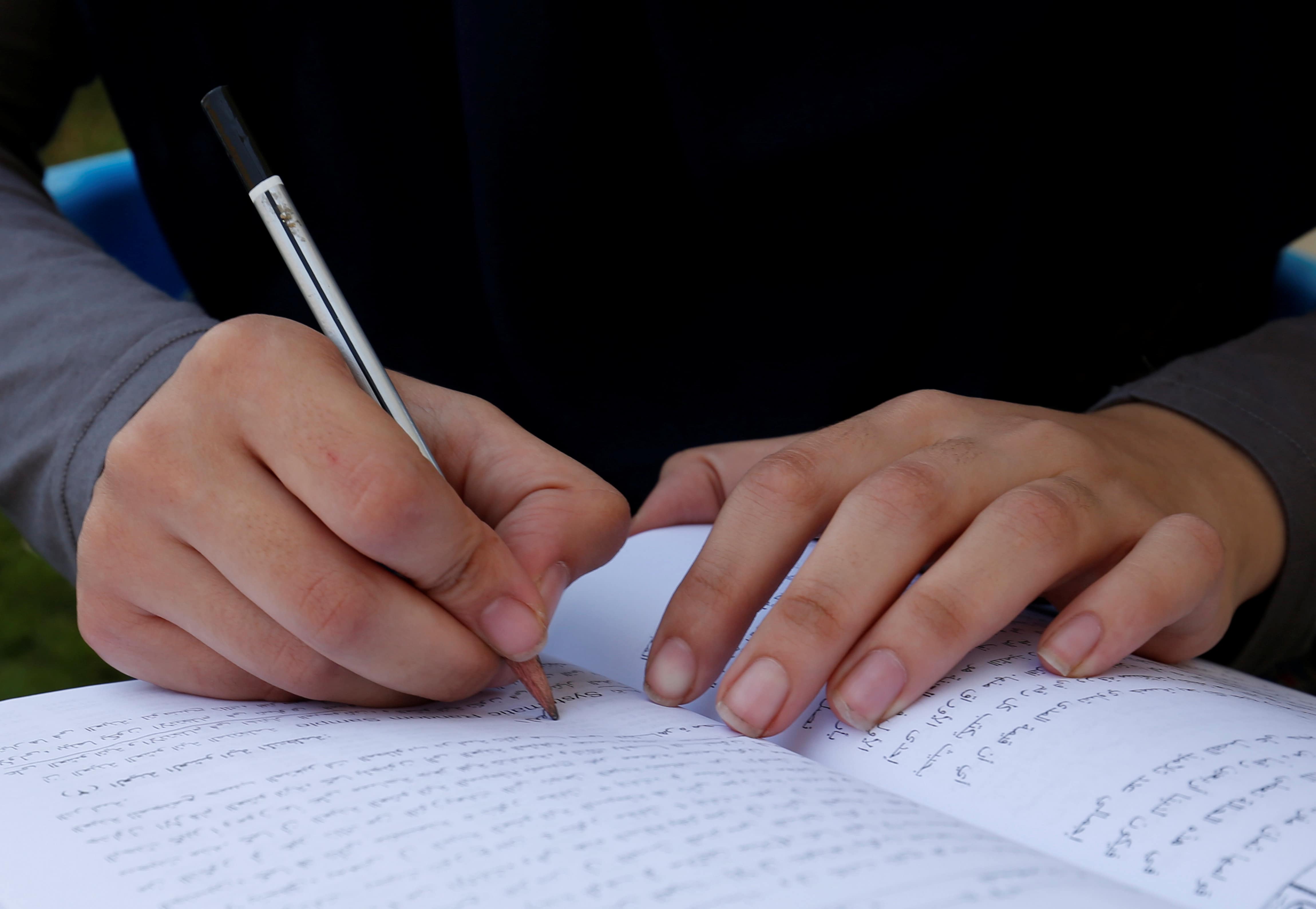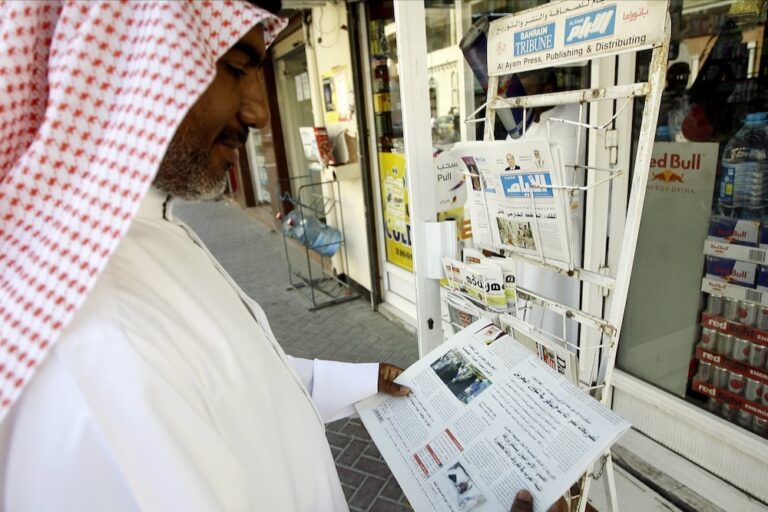Oman and Jordan are two of the most stable countries in their region. But, as Hiba Zayadin points out in our MENA round-up, things may be taking a sinister turn for regular Jordanians and Omanis.
The [un]usual suspects: Oman and Jordan
Oman is one of the more stable countries in the Gulf region, and as the government refocuses on promoting the tourism industry, Oman is better known for its abundance of natural beauty than for free expression violations. But the Sultanate isn’t free of the problems that plague the rest of the region. In fact, according to Freedom House, it has one of the most repressive press laws in the Arab world.
In the last few months, the Omani government has made good use of its press law by sentencing three journalists to prison and ordering the permanent closure of their newspaper, Azamn, over an article that alleged corruption in the judiciary. Editor-in-Chief Ibrahim al-Maamari and Deputy Editor Yousif al-Haj were sentenced to three years in prison. Editor Zaher al-Abri to one year in prison.
Regional and international free expression organisations have taken up the case in an effort to raise awareness about the repressive free expression climate thriving under the radar in Oman.
The Gulf Center for Human Rights (GCHR) has been closely monitoring and reporting on the case since the journalists’ arrests.
The Committee to Protect Journalists (CPJ) and Reporters Without Borders (RSF) sent a joint letter to Sultan Qaboos Bin Said calling on him to intercede and obtain the unconditional release of the three journalists.
The Washington-based Americans for Democracy and Human Rights in Bahrain (ADHRB) delivered an oral intervention on the matter at the United Nations Human Rights Council on 26 September, the same day the verdicts in their cases were announced.
On 10 October, a court that will rule on their appeal on 7 November provisionally released the three journalists. The newspaper remains banned for good.
While Jordan is no stranger to media censorship and press violations, the assassination of writer Nahed Hattar on 25 September shook the nation and the region’s free expression community. His brazen extrajudicial murder on the steps of the Palace of Justice as his trial on charges of “insulting Islam” was about to begin has exposed a darker side to the kingdom, one perpetuated by the state’s repressive policies in regards to the right to freedom of expression.
Statements released by IFEX members, including the International Federation of Journalists (IFJ), the Committee to Protect Journalists (CPJ), PEN international, ARTICLE 19, and the Arabic Network for Human Rights Information (ANHRI) have linked the murder to the State’s repressive climate for freedom of expression. As of the day of his murder, more than 900 Jordanian individuals have signed a statement declaring that they also hold the government responsible.
Human rights defenders as regime targets; Egypt, Bahrain and Iran
The role of human rights defenders in society involves collecting and disseminating information on violations, supporting victims of human rights violations, acting to secure accountability, and supporting better governance and government policy. In Egypt, Bahrain, Iran and other countries in the Middle East and North Africa, rights advocates’ vital work in these areas is increasingly being sidelined as resources, time, and efforts are redirected towards basic survival in the face of intensifying government repression.
Over the past few months, as it doggedly went after some of the most reputable civil society groups in the country, Egypt‘s ruling regime has been at the forefront of what seems like a widespread, regional effort to discredit, silence and in some cases eliminate local rights groups and voices of opposition.
On 17 September, in the latest blow to civil society, a Cairo court issued an order to freeze the assets of three human rights groups and their directors, as well as two prominent individual rights defenders. Two IFEX members and their directors in Egypt were affected by the ruling.
In Bahrain, according to the Bahrain Center for Human Rights (BCHR), the government is using a mixed approach of structural and direct violence to curb dissent. In its aggressive targeting of human rights defenders, it has relied on travel bans, citizenship revocations, arbitrary arrests, torture, show trials, forced confessions and an extensive surveillance apparatus.
BCHR’s President Nabeel Rajab has been kept in detention since 13 June; his trial has been postponed three times so far. Women’s rights defender Ghada Jamsheer is the latest rights’ advocate arrested for her work. She has been in detention since 12 August 2016. Both Rajab and Jamsheer suffer from poor health and are in need of quality medical attention.
In Iran, human rights defenders, journalists, academics, and activists are being targeted with the same vigour if deemed to be critical of government policies or cultural and religious traditions. On 28 September, Iran’s revolutionary court upheld the 10-year sentence of prominent human rights defender Narges Mohammadi, who has been held in the notorious Evin prison since June 2015. In late June 2016, Mohammadi went on hunger strike for 20 days to protest her lack of access to a phone. She ended it only when she was allowed to speak to her children.
The cases of two dual nationals, an academic and a media worker, have also surfaced this September. Canadian-Iranian academic Dr. Homa Hoodfar, who was arrested on 6 June 2016 after nearly three months of repeated questioning by Iran’s intelligence services, was released on 26 September and flown back to Canada. Hoodfar is an anthropology professor and works on issues of gender and development, Islamic family law, and women’s political participation. The reasons for her arrest and subsequent detention were not revealed. Nazanin Zaghari-Ratcliffe, a British-Iranian dual national, works for the media development team at the Thomson Reuters Foundation. She was arrested on her arrival to Iran on 3 April 2016. On 6 September, she was sentenced to five years in prison on national security charges.
Refusing to be silenced: IFEX MENA Members speak at the UN Human Rights Council
While civil society organisations, individual human rights defenders and opposition activists in the region continue to face relentless harassment for their work, it is encouraging that their governments are failing to completely silence or discourage them.
Despite the risks they face when speaking out on rights violations within their own local contexts, individuals from at least four IFEX members focusing on freedom of expression and other human rights in the Middle East and North Africa were present at the UN Human Rights Council’s 33rd session in Geneva, Switzerland.
Between 13 and 30 September, GHCR, BCHR, the Cairo Institute for Human Rights (CIHRS), and Americans for Democracy and Human Rights in Bahrain (ADHRB) delivered oral interventions at the UN HRC, shedding light on critical issues involving sectarian discrimination in the Gulf region, Bedoon rights, arbitrary detentions, reprisals against human rights defenders, and lack of protection for journalists in Syria, Iraq, Yemen, and Bahrain.
Special reports and regional gatherings
• The Internet Governance in the Middle East and North Africa (iGmena) program, an initiative of the Hague-based Humanistic Institute for Development (Hivos), held its first-ever Summit in Tunis, Tunisia, from 30 September and to 2 October. The Summit featured representatives from multiple stakeholders and partners, including Access Now, Article 19, Global Voices, Index on Censorship, the Institute for War and Peace Reporting (IWPR), Psiphon, the Tunisian Internet Agency (ATI), Ushahidi, and others. Presenters and speakers discussed various topics concerning Internet governance in the region, from Internet law and policy to censorship and free expression online.
• 28 September marks the International Day for the Right to Knowledge. This year, the Association for Freedom of Thought and Expression (AFTE), an IFEX member based in Cairo, celebrated the occasion in partnership with the Arab Digital Expression Foundation (ADEF) at ADEF’s headquarters by familiarizing the public with the day and addressing the importance of the right to knowledge and its link to the right to open access software. A film, “Son of the Internet,” was also screened to mark the occasion. The Palestinian Center for Development and Media Freedoms (MADA), an IFEX member based in Palestine, marked the day in its role as part of the Khaberni Coalition for the Right to Access Information, by releasing a statement demanding the passing of an access to information law in Palestine.
• In early September, the Arabic Network for Human Rights Information (ANHRI) released a special report entitled: There Is Room For Everyone: Egypt’s Prisons Before and After January 25 Revolution. The report compiles information and statistics on Egypt’s many prisons, including 19 new ones, as well as its illegal detention centers and security camps.
• A second report by ANHRI published in late September on the climate of free expression in Yemen and the Gulf States in regards to criticisms of or opposition to the Saudi-led coalition’s bombing campaign on Yemeni cities. Entitled Operation Decisive Storm Strikes Freedom of Expression In Yemen and the Gulf, the report provides a brief description of the consequences war critics have faced in the region since the military campaign began in March 2015.
• BCHR, ADHRB and the Bahrain Institute For Rights and Democracy (BIRD) issued a joint report on 14 September entitled Collective Efforts: International Calls for Accountability and Reform in Bahrain. In the report, they analyze all the statements and resolutions of the member states of the United Nations Human Rights Council (HRC), the European Parliament (EP), the Office of the High Commissioner of Human Rights (OHCHR), and the UN Secretary-General since 2011 in order to track the international reaction to the deterioration of Bahrain’s human rights situation.

Relatives of Jordanian writer Nahed Hattar protest in front of the Jordanian Prime Ministry in Amman, Jordan over Hattar’s death. Sign reads in Arabic: No to assassination, no to violence, no to extremism AP Photo/Raad Adayleh

At the 33rd session of the Human Rights Council at the U.N. European headquarters in Geneva, Switzerland, September 13, 2016REUTERS/Denis Balibouse



